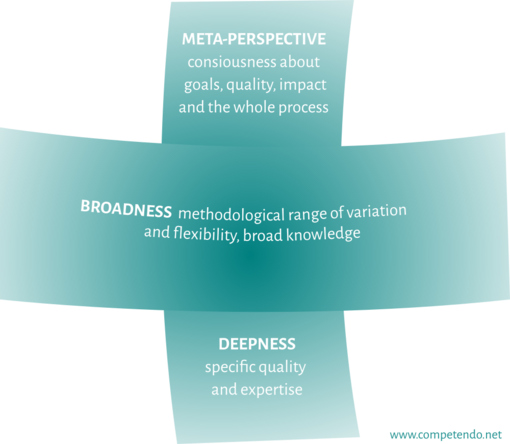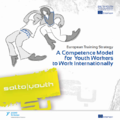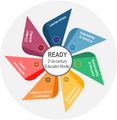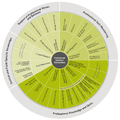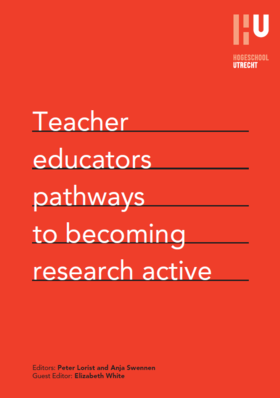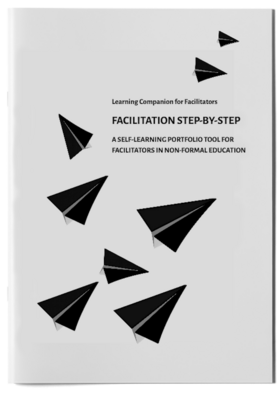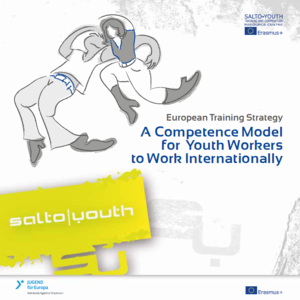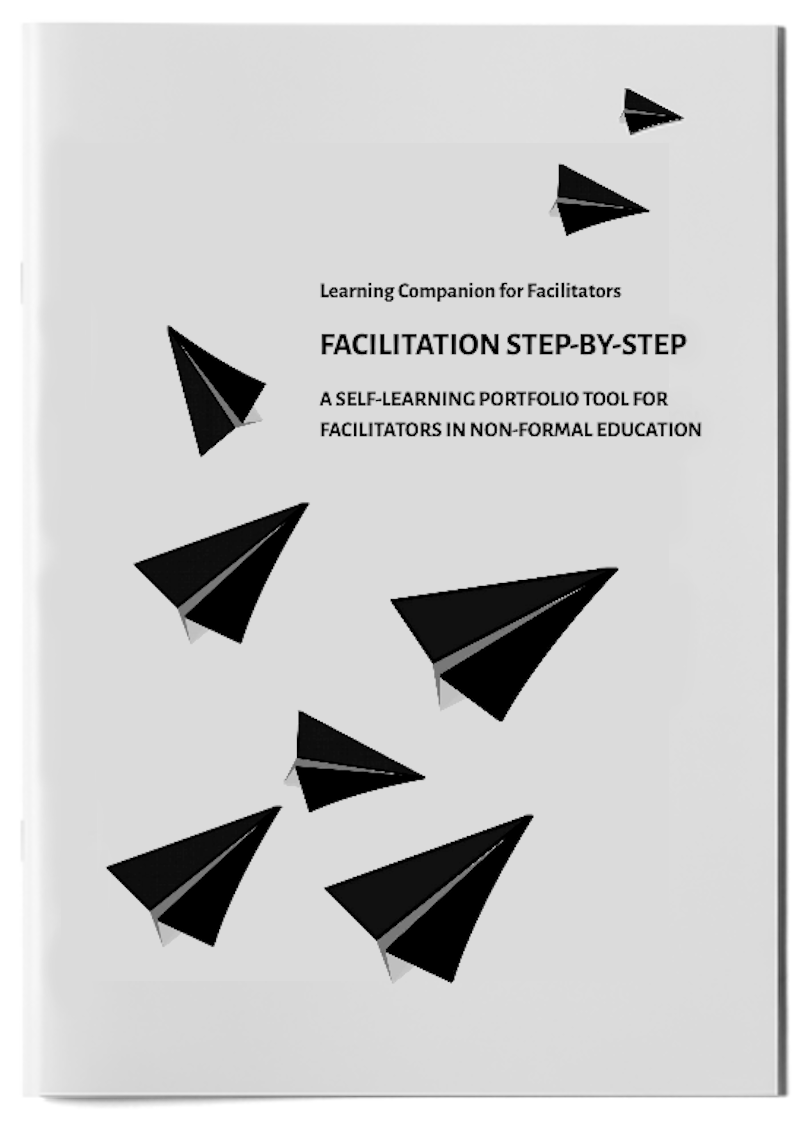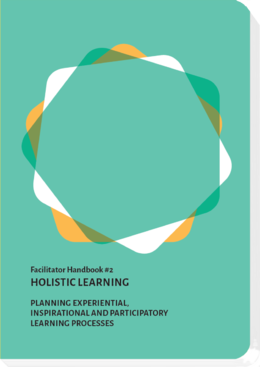Extending the field knowledge and also the personal portfolio, deepening understanding of complex issues and specific expertise, or improving the reflective competence are included or presupposed in many models for training of trainers. Together they form the quality profile of education professionals. The example here shows, that personal development understood as extending the expertise and competence in all three directions is an issue also for trainers/educators/teachers.
Explorative Attitude: The Link to Research
The ATEE – Association for Teacher Education in Europe is promoting the idea of teachers becoming "teacher educators". A teacher educator is a person ongoing reflecting on their practice and opportunities for their own competency-development. Insofar the educator, teacher or facilitator is a key person responsible for the quality of education, because their knowledge, attitude and skills for shaping "fruitful combination of both research and practice"'[1] have a direct impact on the quality of education.
The handbook ATEE Association for Teacher Education in Europe Teacher educators pathways to becoming research active shows paths and motivations of teachers to take this personal learning step. The editors' conclusion could convince to dedicate working time on thinking and exploring the educational practice on a meta-level. A more conscious work on re-shaping competency based learning environments is a big chance and motivator: "If we learn one thing from the four brochures that are published so far, it is that teacher educators are educational travellers. They constantly cross borders and boundaries and do so with great enthusiasm, pleasure and never failing dedication."
Facilitation Step-By-Step
Our learning companion for facilitators is a self-learning portfolio tool for those, that want to work on their professional development. It accompanies you during facilitation work and serves you as a self-assessment, documentation and planning tool. From the content:
- Checklists and tools for self-learning
- Attitude and learning goals
- Target group and institution
- The concrete training
- Evaluation and perspectives
The idea of this learning companion is to support facilitators' self-development as professionals. What you save here represents in sum our portfolio of competences and your characteristics. It can be filled in any form, if writing, painting, drawing or however it is comfortable for you to express yourself.
- Download: Facilitation step-by-step
Competence Model for Youth Workers
SALTO Training created a competence model building upon existing ideas related to learning mobility and to the competences of youth workers. Furthermore, they analyzed existing practise in international youth work. The organization came up with a competence model consisting on eight competence fields. Each field differentiates between knowledge, skills, behavior and attitude.
- Facilitating individual and group learning in an enriching environment
- Designing programmes
- Organising and managing resources
- Collaborating successfully in teams
- Communicating meaningfully with others 6 Displaying intercultural competence
- Networking and advocating
- Developing evaluative practices to assess and implement appropriate change
- Download: ETS Competence Model
References
- ↑ ATEE Association for Teacher Education in Europe
- ↑ SALTO Youth Training and Cooperation Resource Center: Competence Model for Youth Workers to Work Internationally; Download
Nils-Eyk Zimmermann
Editor of Competendo. He writes and works on the topics: active citizenship, civil society, digital transformation, non-formal and lifelong learning, capacity building. Coordinator of European projects, in example DIGIT-AL Digital Transformation in Adult Learning for Active Citizenship, DARE network.
Blogs here: Blog: Civil Resilience.
Email: nils.zimmermann@dare-network.eu



